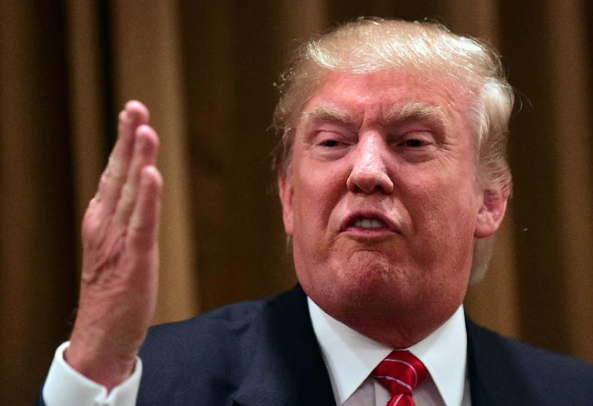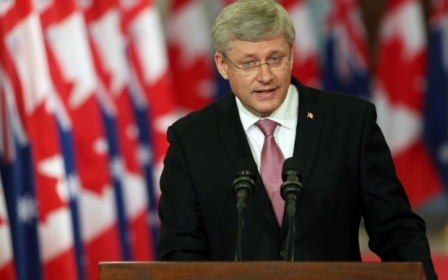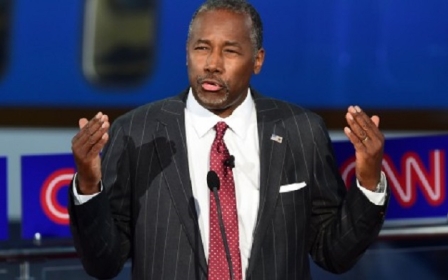US presidential rivals angered by Trump statement favouring Muslim registration

WASHINGTON - Donald Trump's support for registering US Muslims in a database drew criticism Friday from rival Republicans and Democratic presidential frontrunner Hillary Clinton, amid bursts of controversial rhetoric from GOP candidates.
Trump, leading the polls for the Republican nomination, has made several belligerent remarks about Muslims and Syrian refugees in the wake of last week's attacks in Paris claimed by the Islamic State (IS) group.
Trump was asked by NBC News on Thursday whether he would support creating a database system to track Muslims.
"I would certainly implement that. Absolutely," Trump told the network at a campaign stop in Iowa.
"There should be a lot of systems, beyond databases."
As to how he would get Muslims registered, he said it could be done at "different places," not just mosques.
"It would be just good management," he said.
Trump was later asked whether there was a difference between requiring Muslims to register today and Jews registering with Germany's Nazis in the 1930s.
"You tell me," Trump responded.
Clinton slammed Trump's remarks as "shocking rhetoric".
"It should be denounced by all seeking to lead this country," she wrote on Twitter.
Republican candidate Jeb Bush, who has suggested Christian refugees should be prioritized over Muslims, laid into Trump, saying Americans do not have to abandon their values to fight extremism.
"You talk about internment, you talk about closing mosques, you talk about registering people, and that's just wrong," Bush told CNBC Friday.
"That's not strength, that's weakness."
Ohio Governor John Kasich said forcing someone to register with the government because of their religion "strikes against all that we have believed in our nation's history".
Walking back comments?
By midday Friday, Trump appeared to walk back his remarks, although he stood firm on the need for vigilance in tracking extremists.
"I didn't suggest a database - a reporter did," Trump tweeted to his five million followers.
"We must defeat Islamic terrorism; have surveillance, including a watch list, to protect America."
Ben Carson, a top Republican presidential contender, pushed back against Trump.
"If we're just going to pick out a particular group of people based on their religion, based on their race ... that's setting a dangerous precedent," he told reporters in New Hampshire.
Carson made his own controversial comments after the Paris attacks, including Thursday when he equated the threat of extremists slipping into the country as refugees with the threat of a "rabid dog".
Senator Ted Cruz, who has been reticent to directly attack Trump on the campaign trail, is opposed to Syrian Muslim refugees reaching US shores.
But Cruz said he opposed a Muslim database on the grounds it would infringe on American religious liberty.
"I'm not a fan of government registries of American citizens," he said.
"What I do think is important is that the federal government be far more vigorous going after radical Islamic terrorists."
According to the Council on American Islamic Relations (CAIR), a civil rights organisation, more than a dozen presidential hopefuls for the 2016 elections have employed Islamophobic rhetoric during their campaigns.
Such comments have a lasting impact on Muslims and other minorities in the US, CAIR spokesperson Robert McCaw told Al Jazeera.
McCaw said American Muslims have been targeted by government surveillance programmes and intelligence agencies for years.
"The key difference is that Donald Trump would want to bring surveillance programmes like this out of the shadows and into the public with the intention of spying directly on American Muslims," McCaw said.
"These are totalitarian ideas."
Middle East Eye propose une couverture et une analyse indépendantes et incomparables du Moyen-Orient, de l’Afrique du Nord et d’autres régions du monde. Pour en savoir plus sur la reprise de ce contenu et les frais qui s’appliquent, veuillez remplir ce formulaire [en anglais]. Pour en savoir plus sur MEE, cliquez ici [en anglais].




